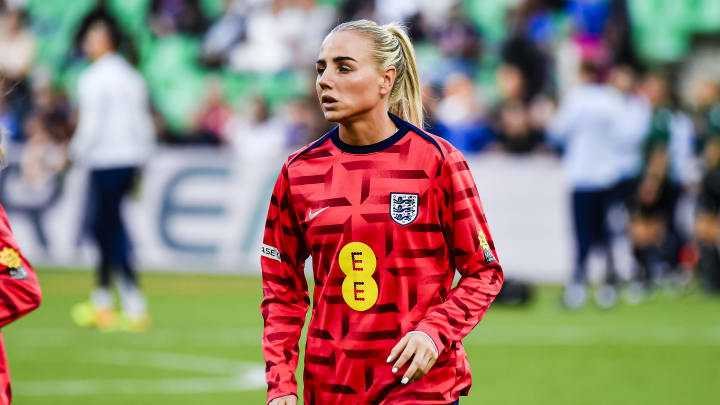Alex Greenwood: 'Difficult conversations' are needed to improve women's football
- Man City defender speaks about her experiences at Fifpro conference
- "We have to be open-minded and engage in difficult conversations"
- Despite strides, there's "still more to be done" in improving women's football

If you'd have told me five years ago that women's football would be where it is today I wouldn't have believed you.
Sold-out stadiums, matches aired on TV at peak times over the weekend and an England Euros win on home turf is the stuff of dreams. Although it's important to celebrate progress, it's even more important to continue having the difficult conversations needed for the game to be treated equally.
The last month has been a stark warning about the dangers of becoming complacent in our fight to stamp out adversity, after women found themselves sidelined when the going got tough.
In an interview with Bloomberg published this week, new Manchester United co-owner Sir Jim Ratcliffe admitted plans for the future of the club's women’s side are yet to be finalised.
When asked why, he said they'd been "focused on resolving the first team issues". In a choice use of words, Ratcliffe managed to single-handedly reveal a belief that the women's team are secondary to the men's - a huge blow for a club that won the Women's FA Cup in May.
Outside of the WSL, the prominence of inequality is far greater. It was revealed recently that, due to financial worries, the entire women's division at Reading Football Club, including the girl's academy is at risk of abolishment.
We also had to witness high-profile players, like England and Arsenal forward Beth Mead, publicly shame non-league club Thornaby FC for announcing plans to axe all of their women's teams, after what they described a "difficult year".
Although the decision has now been overturned, there's no denying that it's been a bleak few weeks for the women's game. It goes to show that despite progressiveness, women are still being seen as secondary to their male counterparts, and we can't forget to keep advocating for change.
What role do players have in influencing change?
We are lucky in women's football to have dozens of players willing to go against the grain, to speak out and challenge those in the industry to do better.
Manchester City's Alex Greenwood is the latest in a long line to highlight the urgent need to bring difficult conversations to the forefront.
She attended and spoke at Fifpro's Women's Player Summit in Bilbao last month, which gave players the opportunity to give direct feedback on issues affecting them.
Despite admitting to being "a little uneducated on certain topics that happen", she asked for "more education on what is going on".
"That was one of the biggest reasons for me to come here, other than being passionate about improving the game and being a voice for change," Greenwood said.
"It's an important event because we speak about topics that maybe you're uncomfortable to speak about in different situations and it opens conversations that don't happen enough in my opinion."
Greenwood began her career in 2010 with Everton, and is now playing at the top of her game with Manchester City and as an England international. She was Manchester United's first captain and has experience playing in France, winning the Champions League with former club Lyon.
She went on to express belief in the influential value players can have in achieving positive change: "If we speak about the calendar, if we speak about injury, if we speak about player welfare conditions and environments, we’re the ones living it every day and the voice that we have can be powerful for positive change.
"Everyone's experiences and opinions will be so different, which is the reason we have to be open-minded and engage in those difficult conversations."
READ THE LATEST WOMEN'S FOOTBALL NEWS, FEATURES & ANALYSIS
feed